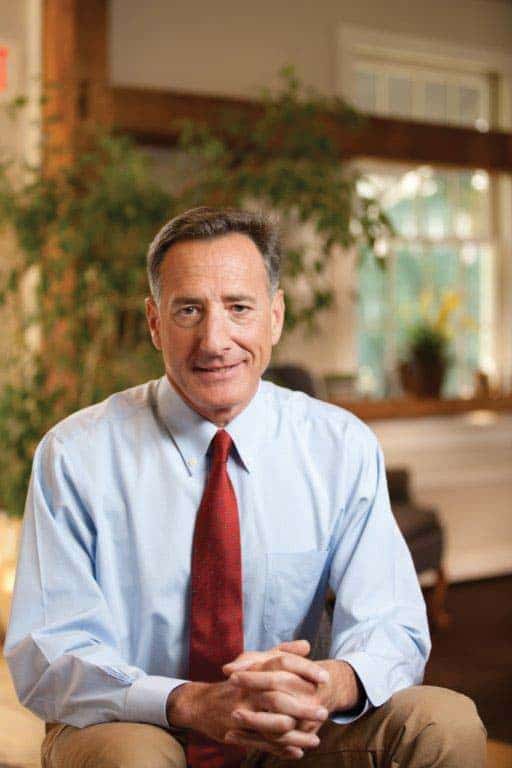Even as Vermont’s economy continues to show signs of progress, the message I hear from Vermonters is that they don’t feel the economic recovery is reaching their pocketbooks. While we have the sixth lowest unemployment rate in America and Vermont employers have thousands of job openings, incomes and wages for working Vermonters have not recovered fast enough from the depths of the Great Recession. This is a national trend from which Vermont is not immune, and it’s why I am so focused on making this economy work for every single Vermonter. As the legislative session comes to a close, I am very concerned about proposed income tax hikes that will make it even harder for working Vermonters to get ahead. In my view, we need to make every effort to cut spending before we ask middle class Vermonters to pay higher taxes.
The Legislature has done good work dealing with a very challenging budget gap facing the state this year. However, I feel that the income tax changes being considered are not geared toward improving our economy or Vermonters’ prosperity. Instead of making these changes and asking working Vermonters to pay more in income taxes, I feel we should do everything we can to reduce spending further and avoid these increases.
My message is simple: Let’s find additional spending reductions before we ask Vermonters to pay more income taxes.
The changes being talked about in the Legislature will hike income taxes on Vermonters by limiting their ability to deduct home mortgage interest, charitable giving, and catastrophic medical expenses. Each of these deductions exists to support individuals and families working hard to make a living. Limiting them will not only result in middle class Vermonters paying higher taxes; it will have adverse effects on our efforts to promote an economy that works for all Vermonters.
Take the mortgage interest deduction. Allowing families to deduct mortgage interest encourages people to buy a home, put down roots in Vermont, and contribute to strong communities. We need more young people starting families in this state, and homeownership is something I want to promote. The changes being discussed, however, would make it harder for Vermont families to afford to buy a home, increasing taxes, for example, on those with a mortgage of $250,000. This will hurt most for homeowners at the beginning of their mortgage when they are stretching to make ends meet. At a time when property taxes are on the rise, income growth is slower than we wish, and we’re looking to attract young families to this state, the last thing we should do is make it more expensive to own a home in Vermont.
Another proposed income tax increase would limit the ability of Vermonters to deduct catastrophic medical expenses, an important lifeline for Vermonters who suffer from an unforeseen medical emergency or expense. We know that while nearly all Vermonters are insured, too many are underinsured and one accident or medical complication can lead to bankruptcy. The catastrophic medical deduction exists to help soften the blow to Vermonters’ bottom lines when they experience such an event. Make no mistake about it, the proposal to limit this deduction would hit seniors the hardest since they take nearly 70 percent of the deductions for catastrophic medical expenses.
And then there is limiting charitable deductions. We can all think of a charity, whether Vermont-based or not, that has made a difference in our lives or the life of someone we know. Think of the Vermont Foodbank helping to feed those in need during the holidays, or the Red Cross helping to get aid to those who suffered from the recent earthquake in Nepal. We want people to donate to charities because they do the often thankless work that no one else will. Limiting the incentive for Vermonters to donate to those charities is not pennywise and pound foolish; it’s foolish all around.
I know some will say it’s not consistent when I say we cannot raise taxes on Vermonters since I proposed raising revenue to shore up primary care and reduce health care costs in the longer term. But there is an important difference. I proposed a dedicated revenue source that would have drawn down $100 million in federal matching funds to be used specifically for our health care challenges. Not only would my proposal have returned through health care premium savings the money paid by Vermonters, it would have also leveraged federal funds to help pay for tens of millions in health care expenses that will now have to be borne by Vermont taxpayers.
The Legislature has not acted on my proposal, which is their prerogative. But I feel strongly that if we are not going to deal with our health care challenges, we must do more work to reduce spending to soften the blow of the health care cost increases that will result from inaction on this issue. Otherwise, we will be back year after year asking Vermonters to pay more in taxes.




